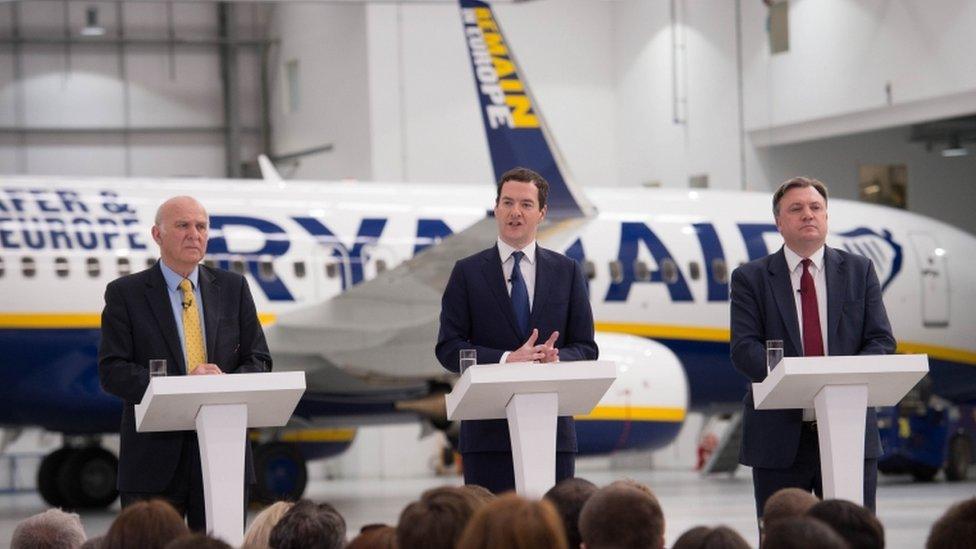EU referendum: Ryanair accused of breaking electoral law
- Published

A Ryanair plane carrying a pro-EU slogan was the backdrop for a recent news conference
Ryanair has been accused of breaking electoral law in its campaign for the UK to stay in the EU.
The Electoral Commission says anyone intending to spend more than £10,000 campaigning in the referendum must register with it.
Ryanair has pledged to spend much more and printed slogans on one of its aircraft, but has not registered.
Vote Leave has urged the commission to investigate. The airline dubbed the campaign "Leave loonies".
The UK votes on whether to stay in or leave the European Union in a referendum on 23 June.
'Really desperate'
Chancellor George Osborne, former shadow chancellor Ed Balls and Liberal Democrat Sir Vince Cable gave speeches making the case for remaining in the EU in front of a sign-written aircraft at Ryanair's base at Stansted Airport.
It has been reported that Ryanair intends to spend €25,000 (£18,980) on a campaign for Remain. It has offered discounted flights to passengers who want to fly home to vote to stay in the EU.
The airline may be able to disregard the spending rules as it is registered as a company in Ireland.
A Ryanair spokesman told the Today programme on BBC Radio 4: "The Leave campaign must be getting really desperate if they're objecting to low-fare air travel for British citizens.
"With less than four weeks to go, we will continue to work hard to help deliver a resounding Remain majority on 23 June - and ensure that the Leave loonies don't ban low-fare air travel too."
Bribery claim
An Electoral Commission spokesman said it had "received a complaint from Vote Leave regarding the campaigning activity of Ryanair at the EU referendum".
It added: "We are establishing the facts before determining what, if any, further steps to take."
Earlier in May, Vote Leave reported Ryanair to the Metropolitan Police accusing it of bribery for offering discounted flights home to Remain voters - a suggestion rejected by Ryanair, which announced it would extend its offer.
A series of major companies have given the Remain campaign their public backing but only the recruitment firm Adecco, a TV documentary producer and an advertising firm are registered campaigners so far.
Adecco said it had registered because it had sponsored a single panel event with a think tank.